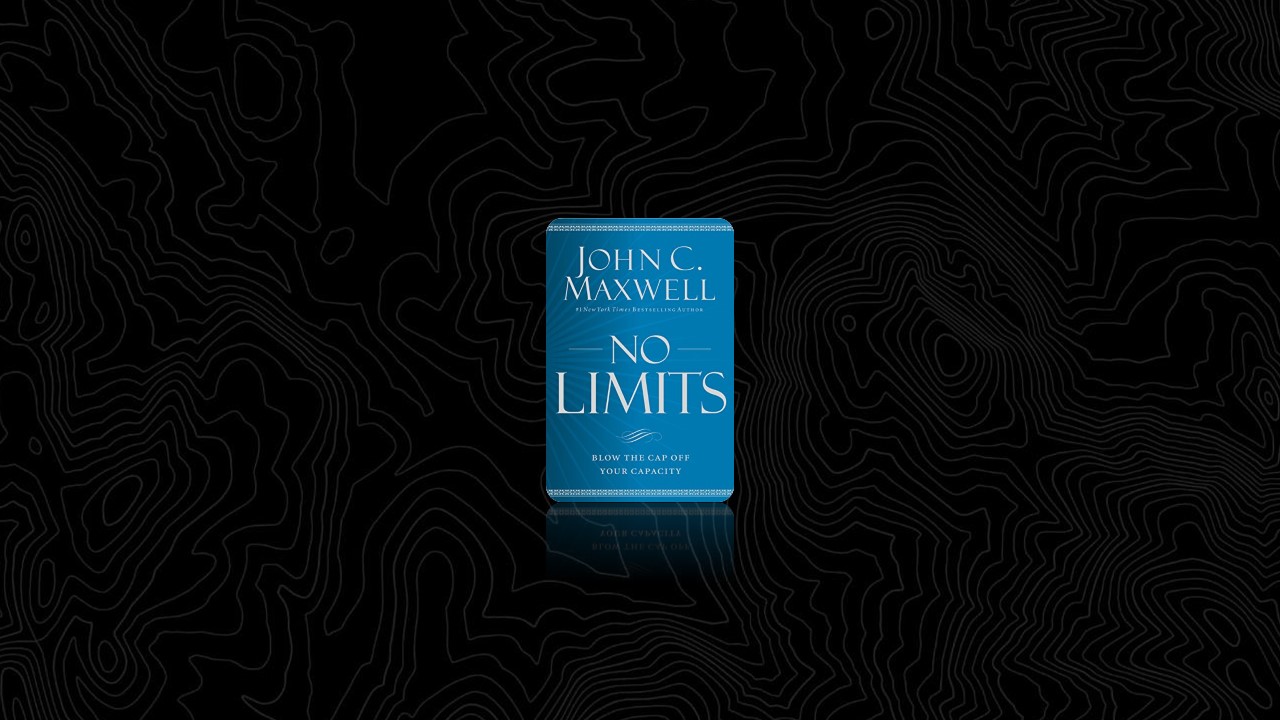Do You Know What’s Limiting You?
You’ve probably heard the saying “If you want something done, give it to a busy person.” It may sound counterintuitive, yet it’s true. People who can get a lot done seem to be able to take on even more and remain productive. Why is that? Do some people simply have high capacity while others don’t?
Have you given much thought to your capacity? Most people think theirs is set. You hear one person identified as “high capacity” and another as “low capacity,” and you just accept it. What’s your capacity? Have you defined it as high, low, or average? Do you think it’s set? Maybe you haven’t put a label on it, but you’ve probably settled into a level of achievement that you believe is what’s possible for you.
That’s a problem. Too many people hear the word capacity and assume it’s a limitation. They assume their capacity is set—especially if they’re beyond a certain age. People give up on the idea that their capacity or their potential can grow. All they do is try to manage whatever they think they’ve got.
Charles Schulz, creator of the Peanuts comic strip, wrote, “Life is like a ten-speed bike. Most of us have gears we never use.” What he’s saying is that most of us have capacity that is untapped. We have capacity that we’re not even aware of. But we can change that.
Energy Capacity—Your Ability to Push On Physically
There are many capacities that we can increase, but there’s nothing we can do to expand time. The number of minutes in a day, days in a week, and weeks in a year are set. Even our time here on Earth is fixed. Our days are numbered.
That’s why we need to focus on our energy. That’s something we can influence. In their book The Power of Full Engagement, authors Jim Loehr and Tony Schwartz assert, “Energy, not time, is the fundamental currency of high performance.”
The ultimate measure of our lives is not how much time we spend on the planet, but rather how much energy we invest in the time that we have. The premise of this book—and of the training we do each year with thousands of clients—is simple enough: Performance, health, and happiness are grounded in the skillful management of energy.… The number of hours in a day is fixed, but the quantity and quality of energy available to us is not. It is our most precious resource. The more we take responsibility for the energy we bring to the world, the more empowered and productive we become.
Emotional Capacity—Your Ability to Manage Your Emotions
The first and maybe most important thing that emotionally strong people do is take an active approach to their emotions. They never say, “That’s just how I feel. I can’t help that.” They are never victims of their own feelings.
Researcher and teacher M. Asch said in her book Perspectives on Applied Psychology, “Remember, motions are the precursors of emotions.” That means you can do things to influence your own emotions. Maybe you can’t control them completely, but you can change them through your actions. One of this was written by author and speaker Og Mandino. He said,
If I feel depressed I will sing.
If I feel sad I will laugh.
If I feel ill I will double my labor.
If I feel fear I will plunge ahead.
If I feel inferior I will wear new garments.
If I feel uncertain I will raise my voice.
If I feel poverty I will think of wealth to come.
If I feel incompetent I will remember past success.
If I feel insignificant I will remember my goals.
Today I will be master of my emotions.
Thinking Capacity—Your Ability to Think Effectively
Most people do not recognize the value of good thinking. They have thoughts, but they let them go and don’t do anything with them. However, when you value good thoughts, it makes all of your thinking more valuable. That is the starting point of increasing your thinking capacity
Becoming a better thinker means having the right mind-set. Two people can see the same things, go through the same experiences, have the same conversations, yet one walks away with a flurry of great thoughts and the other without a single new idea. To increase your thinking capacity, you need to become an idea digger.
Any time you have an idea that can add value to others, you should take note of it and plan to give it more thought. Ask yourself, “Where can I maximize that idea?” If it will help your organization, apply it there. Also pay attention if the idea meets you where you are in your life journey, if it will help you become better in one of your strengths, or if it will help you to grow and get better.
People Capacity—Your Ability to Build Relationships
You cannot increase your people capacity unless you value people and care about them. If you don’t like people, don’t respect them, and don’t believe they have value, it stands as a barrier to your success with them. You can’t secretly look down on others and build them up at the same time. However, if you value people, it shows through. And it makes the development of positive relationships possible.
Make yourself available to the people in your life. And be alert to ways you can go to them when they need it. Sometimes you don’t even need to say a word. Just be there. Just let others know what they mean to you.
Creative Capacity—Your Ability to See Options and Find Answers
Creative people, whether they are artists, inventors, businesspeople, or teachers, believe there are always better ways to do things. And they search for them.
Don’t cap your expectations! What you define as impossible today is impossible only in the context of present paradigms. But maybe we should let William Wordsworth have the last word on this subject of the untapped promise that lies within us all. Speaking of his fellow humans, he said simply, “We are greater than we know.” It’s true for us as individuals, as institutions, and as a society. We can only guess at our true potential. And we can only achieve it if we get past the paradigms and unleash our imaginations.
When you believe that everyone and everything can get better, it gives you confidence that you can help people and make a difference. And it inspires you to keep looking for ways to solve problems and pursue opportunities.
Production Capacity—Your Ability to Accomplish Results
Downhill is easy. It has no requirements. It doesn’t take any effort. It’s like feeling the effects of gravity, which continually pull us down. You can slide downhill—in your sleep. A downhill lifestyle is characterized by unintentionality, complacency, inconsistency, and excuses. There is no big-picture vision for the future, only instant gratification.
Uphill is hard. Moving uphill requires intentionality, energy, determination, hard work, and consistency. It requires you to keep an eye on the big picture, be determined, demonstrate character, and put in the time. The right thing to do and the hard thing to do are usually the same thing. More and more people resist doing the right thing because it’s hard, so they choose the easy thing. They go downhill instead of uphill.
Leadership Capacity—Your Ability to Lift and Lead Others
By its nature, leadership is about creating change. As a leader, you are inviting people to change their focus, change their energy, change their skills, and sometimes even their direction in life for the sake of the team and the accomplishment of the vision. How do you get people to trust you for so many changes? The foundation of trust needs to be built on good relationships, and good relationships start with good connection.
If you’re a task-oriented person, connecting may be something you have to work at to achieve. If you’re a people person, building the relationships may come naturally. But making the transition from relationship building to movement requires a leadershift. That “shift” is the transition from connecting with people to helping them make the changes necessary for the benefit of the team.


